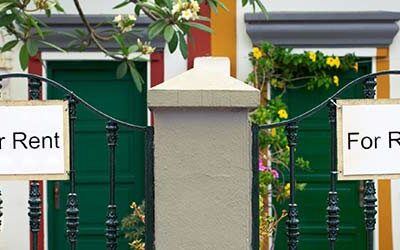Before you start shopping for a new home, you’ll need to know exactly how much house you can afford. Otherwise, you could end up in a home that is way out of your budget. What you qualify for may not be what you can actually afford, based on your personal situation. Only you can decide how much you’re comfortable paying every month.

How Much Home Can You Afford?
While you may be tempted to spend the full amount of mortgage you’re approved for, you should take your total expenses into consideration. When deciding how much to spend on a home, remember: your decision should be based on:
- Your current expenses – Even if your mortgage amount is under 40 percent of your total debt, you may have other expenses not taken into consideration by the lender or the bank. Take into account your down payment, closing costs, monthly debt payments, and other living costs – such as groceries, transportation, and dining out.
- Your future expenses – If your financial situation changes in the future, will you still be able to afford your home? Your pre-approval is based on your current income and debt levels. Consider whether you’ll still be able to pay your monthly mortgage if you lose your job or take on more expenses.
- Your lifestyle – Take a look at your current budget. Are you going to have to make cutbacks or changes to your current lifestyle in order to live comfortably with the mortgage amount? Decide what parts – if any – of your lifestyle you’re willing to sacrifice. You may decide giving up certain aspects of your lifestyle are worth getting into a ‘better’ home. On the other hand, you may feel happier spending less on a home if you can maintain other aspects of your lifestyle. Figure out your priorities, and go from there.
How is Your Mortgage Amount Determined By the Lender?
When you go to a bank or lender for a mortgage pre-approval, you’ll receive a quote for the maximum amount you can borrow. Banks and lenders use specific calculations – called mortgage ratios – to determine what you can afford based on your overall monthly debts, including housing costs. These ratios are:
- Gross Debt Service (GDS) Ratio – Your mortgage expenses (principal, interest, utility costs, condominium maintenance fees, and property tax) should represent no more than 32 percent of your gross annual income.
- Total Debt Service (TDS) Ratio – The gross annual income needed for all debt, including housing costs, personal and car loans, and credit cards. Your total debt should not exceed 40 percent of your gross annual income.
Don’t feel pressured to spend the full mortgage amount you’ve been approved for. Once you’ve considered the above factors, you’ll have a better idea of how much money you should spend on a home.
Related Articles
Alberta – The Benefits of Investing in Income Producing Properties
Making money in any real estate venture is a difficult task, and many people don't have the skills (or the stomach) for flipping houses. An alternative to this intrinsically risky activity is to purchase a property for the long term and rent it out. These types of...
Alberta – Why You Need an Emergency Fund And How to Get One
Building an emergency fund is something most people know they should do but few actually get around to doing. A recent study found that nearly two-thirds of Americans did not have an emergency fund, and more than half would have trouble coming up with $1,000 on short...
Alberta – Strategies to Dig Yourself Out of the Debt Hole
Debt. It's something almost everyone will have at some point in their life. But what happens when your debt begins to get the better of you? What options are available? Some simple strategies can help you get your debt out of a seemingly unmanageable situation; it's...



